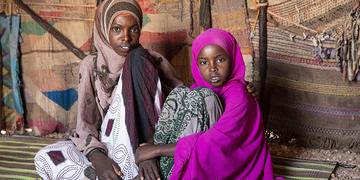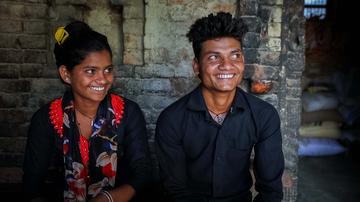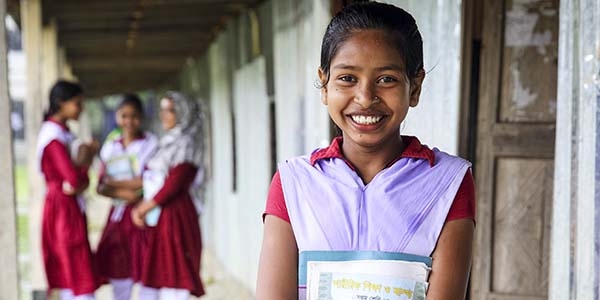Our Work in Adolescent Health
Adolescence represents a critical window of opportunity when young people learn to make independent decisions and form their own attitudes and beliefs. Save the Children works to ensure that adolescents have access to comprehensive health information and services.
Our global programs are age-and life-stage tailored, with particular attention to the needs of “very young adolescents” (10- to 14-year-olds) and young parents. In addition, we prioritize strengthening health systems to provide integrated health services to adolescents and implement innovative positive youth development approaches that integrate health, education, and economic empowerment.

Age- and Life-Stage Tailored Approaches
Our programs target adolescents in critical periods of their lives: during young adolescence and as first-time and young parents. Very young adolescents (VYAs; ages 10-14), are a group often neglected in global health programs.
Our programs fill a critical information and service gap and equip young adolescents with the ability to navigate challenges and opportunities during puberty. We work with first-time and young parents, and their families and communities, to improve their health and well-being.
All of our life-stage programs foster the development of positive social norms, build linkages to health systems, and increase access to critical health services.

Equitable Social and Norms and Healthy Behaviors
Save the Children leads the way in developing innovative social and behavior change activities that engage adolescents, their parents and communities to inspire healthy behaviors and personal reflection.
These activities drive changes in behaviors and societal expectations, such as sharing household responsibilities more equitably and prioritizing education before marriage.

Adolescent-Responsive Health Systems
Adolescents face a range of barriers to accessing age-appropriate services. Our programs address these barriers by strengthening the health systems’ ability to provide quality community- and facility-based services to adolescents.
Africa
Asia
Middle East & North Africa
North America, Latin American & the Caribbean



